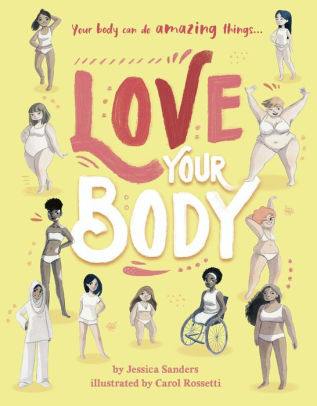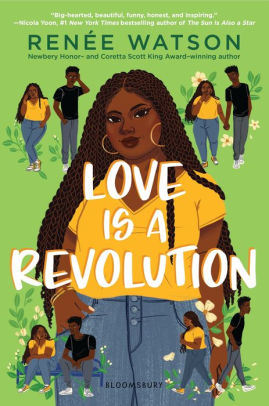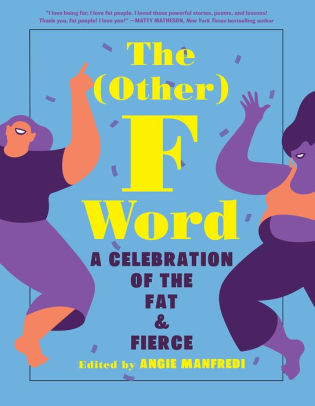“Body Positivity,” as a whole, tries to correct a false narrative by substituting an unreal narrative.
About 15 years ago, a disturbing trend was popping up among teens, almost all girls. They were obsessed with being thin, to the point of starving themselves (anorexia) or gagging themselves (bulimia). I heard tales of massive plumbing repairs in college dorms because of all the stomach acid flushed down the pipes. Gross—and possibly untrue. It’s hard to know how widespread the problem actually was, but we don’t hear much about it anymore. Outside of a few fringe websites, self-starvation was universally condemned. Such a twisted relationship with food was obviously unhealthy! And the super-model ideal was not realistic for most of us.
But is it possible to swing too far in the other direction?
Enter “body positivity.” Like queer theory, critical race theory, transgender ideology, it began in the university, where “fat-shaming” became just another form of discrimination by the powerful. (Fat is actually beautiful, healthy, and perfect, once we ditch all white patriarchy!) Disability and transgenderism are also forms of body positivity, but FAT is by far the most widely shared.
Let me say here that healthy body types come in big, tall, and wide, as well as beanpole-skinny. Popular culture has indeed idolized the swimsuit model, and “ideal weights” are not necessarily ideal for every individual body. But obesity—say, 200 pounds on a 5’4” frame—is what we’re talking about here.
Last year saw a slew of body-positive books in children’s publishing, and they’re still coming: picture books, fiction, and nonfiction. All of them have certain similarities, and noticeable omissions.

For instance, almost all are for girls. Love Your Body, a picture book by Jessica Sanders, is explicitly directed at girls (and those who identify as girls). Author note: “It is my hope that this book will comfort you, guide you, and empower you. I want you to know that you are extraordinary exactly as you are. Once you know this to be true, nothing will be able to hold you back—you and your incredible body will be able to do anything, so dream big.”
The message that “Every body is a good body” seems to fly in the face of males who identify as female—in that case, it’s the wrong body. But that’s not the only false and confusing note in the body-positivity movement.

Major themes in all these books are Self-care and Self-love. In Renee Watson’s Love Is a Revolution, the protagonist is plus-size, but it doesn’t seem to be much of a problem for the guy she’s attracted to. They meet and click and date and develop misunderstandings and drift apart—and surprisingly, they don’t drift together again. The protagonist decides to stall romance in order to learn to love herself. In the context, it’s a wise decision, but the message comes off a bit garbled. Is self-love the road to self-discovery? Do kids really need tips about making playlists that “affirm, motivate, and encourage,” or are they pretty good at that already?
Your body is amazing! YOU are amazing! is a major theme of body positivity. Though some space is given to helping others and being grateful, even that is part of the Rx for self-care.
The (Other) F Word: A Celebration of the Fat and Fierce, is all about being fat and loving it. Most of the 33 contributors to this nonfiction anthology are female and at least half are either gender nonconforming or gay. In various ways, all communicate the same message as stated by the book’s editor:
Your body is perfect. Yes, yours. Exactly the way it is, right now in this second. Don’t ever forget it.

Some of the contributors, to judge by their photos, seem only hefty. Others look grossly overweight. Their references to doctors and health care are mostly negative. “Health [says Alex Gino, author of George and Rick], is something we can’t control—genes, histories, resources, communities.” Genes play a big part in the conditions one may inherit, but of course we can control our health to an extent. None of the contributors say anything about exercise, physical activity, mitigating strategies, or self-discipline.
And—this seems odd—few of them say anything about food. They write of movies, clothes, relationships, self-esteem, discrimination, activism. But not the one thing, presumably, that made them fat. Gino mentions food mostly as an act of defiance, or “body sovereignty” (like “Eating candy in the park at 10 a.m. while smiling at people taking their daily run”).
Genes and metabolism do make it extremely difficult for some people to lose extra pounds. But most of us gain weight when we eat too much. And why does anyone eat too much?
That’s a subject the contributors to The (Other) F Word never take up.
In some ways body positivity is a reaction against body negativity. We know (or remember) how kids are often vicious in their criticism of every physical imperfection in themselves and others. But for all the emphasis on “this too, too solid flesh” (to quote Hamlet) body positivity is strangely vague and wishful, as if repeating “My body is perfect” 12 times each morning and night will make it so. The fact is, no body, this side of the resurrection, is perfect. Most will age, and all will die. Body positivity often resembles a form of Gnosticism, where the physical is an illusion and the illusion is real.
But the more important fact is this: the wonder of your body, in all its functions and talents and potential, is owed to the One who designed and created it. Bodies are important to him, and that’s why they should be important to us. Not as an identity or sovereignty or self-expression, but as a God-expression.
One day all bodies will go back to him. If they have glorified him, he will glorify them. That’s all the body positivity we need.
Also at Redeemed Reader:
Reflection: Kelly Jensen, editor of The (Other) F Word, compiled a similar anthology for feminism in Here We Are.
Review: The overweight protagonist of Nikki Grimes’ verse novel, Garvey’s Choice, learns to see himself as God’s image and take some positive steps.
Support our writers and help keep Redeemed Reader ad-free by joining the Redeemed Reader Fellowship.
Stay Up to Date!
Get the information you need to make wise choices about books for your children and teens.
Our weekly newsletter includes our latest reviews, related links from around the web, a featured book list, book trivia, and more. We never sell your information. You may unsubscribe at any time.
We'd love to hear from you!
Our comments are now limited to our members (both Silver and Golden Key). Members, you just need to log in with your normal log-in credentials!
Not a member yet? You can join the Silver Key ($2.99/month) for a free 2-week trial. Cancel at any time. Find out more about membership here.
4 Comments
Leave a Comment
You must be logged in to post a comment.


[…] What Is “Body Positivity”? […]
[…] Redeemed Reader – What Is “Body Positivity”? […]
I agree that bodies are never perfect on this earth, but I do believe there is a need for books fighting back against fat people stereotypes and shaming. And yes, obesity is rarely healthy, but that doesn’t mean obese people should be exclude from literature or stereotyped or shamed.
I do agree with the “You don’t need to change your body” because maybe a person’s weight isn’t healthy, but I’m sure they are aware of that and it’s their choice about how much they weigh. They don’t need to change their bodies if they don’t want to, but it’s also their choice to lose weight if they want to. Because it’s THEIR body.
I want to call attention to calling people “grossly overweight.” I’m sure you didn’t mean it as “disgustingly overweight,” but it isn’t the kindest language. I’m sure I’d never want to be call “grossly overweight.”
Thank you!
Point taken about “grossly overweight.”
I’m not for shaming, either. As I mentioned, the obsession with thinness is also unhealthy and partly to blame for the reaction against it. I disagree with the statement that it’s THEIR body, however. Our bodies are designed by God and we have a responsibility to care for them.